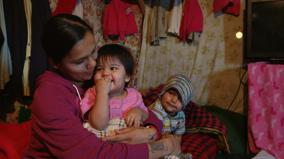New release
Coming
None
Keepers of the Fire
1994
54 min
Leaving soon
For half of a millennium, Indigenous women have been at the forefront of their peoples' resistance to cultural assimilation. Today, they are still fighting for the survival of their cultures and their peoples--in the rain forest and the city, in the courts and the legislatures, in the Longhouse and the media. Keepers of the Fire profiles Indigenous 'warrior women' in Canada who are protecting and defending their land, their culture and their people in the time-honoured tradition of their foremothers.

Details
For half of a millennium, Indigenous women have been at the forefront of their peoples' resistance to cultural assimilation. Today, they are still fighting for the survival of their cultures and their peoples--in the rain forest and the city, in the courts and the legislatures, in the Longhouse and the media. Keepers of the Fire profiles Indigenous 'warrior women' in Canada who are protecting and defending their land, their culture and their people in the time-honoured tradition of their foremothers.
-
directorChristine Welsh
-
scriptChristine Welsh
-
producerIan HerringChristine WelshSigne JohanssonJoe MacDonald
-
executive producerMichael Chechik
-
photographyPhilip Earnshaw
-
soundJustine Pimlott
-
editingLara Mazur
-
sound editingIngrid Rosen
-
musicMartin Gotfrit
Education
Pedagogical evaluations and study guides are only available to CAMPUS subscribers.
CAMPUS
Features designed specifically for teachers. Learn more
Already subscribed? Sign in











